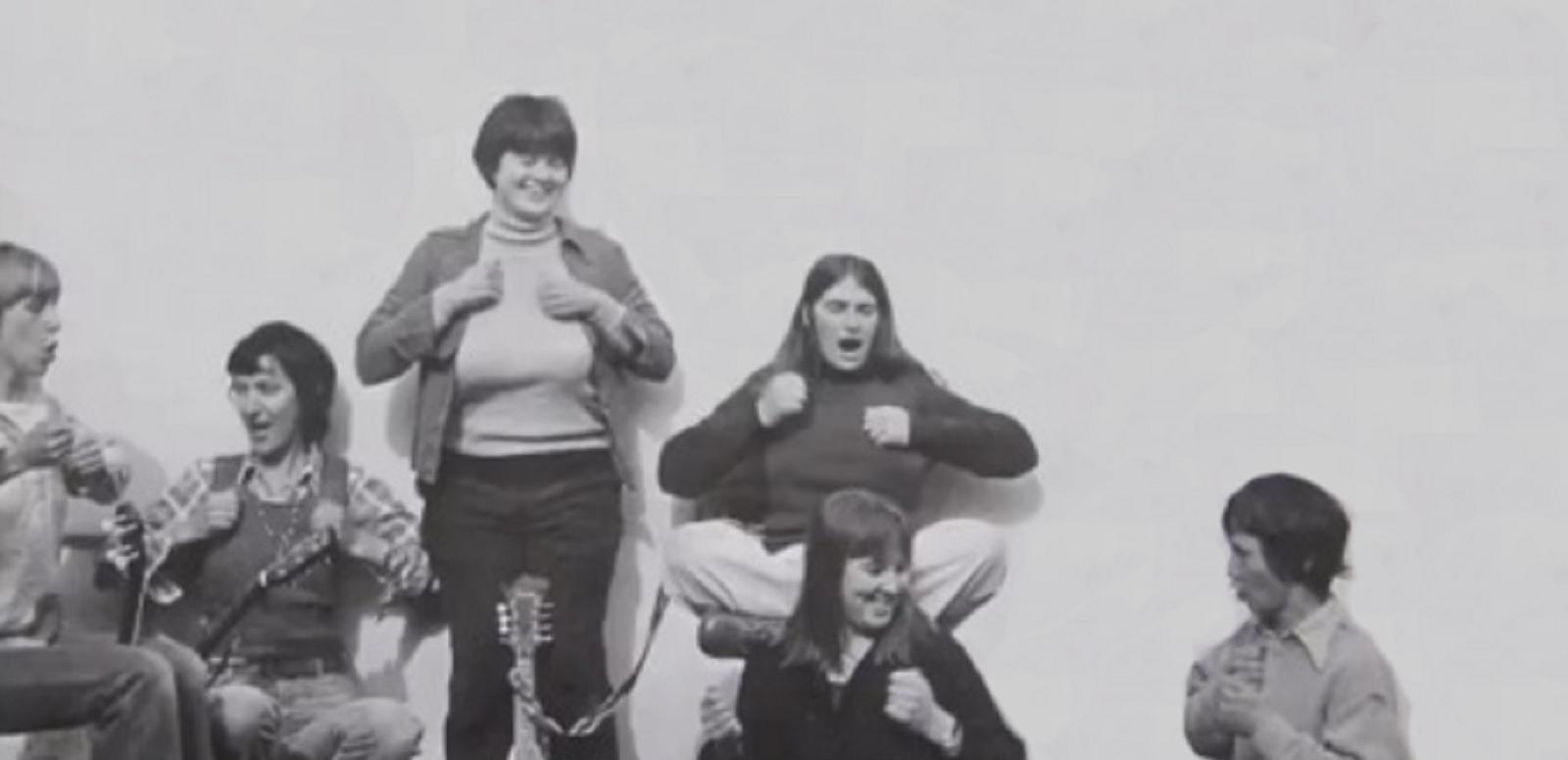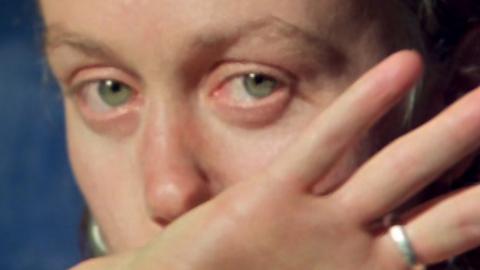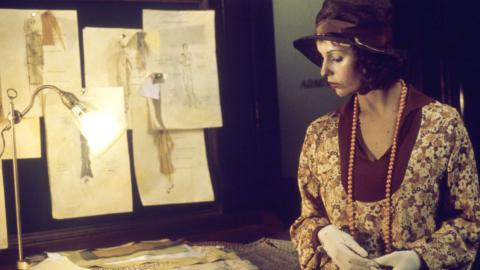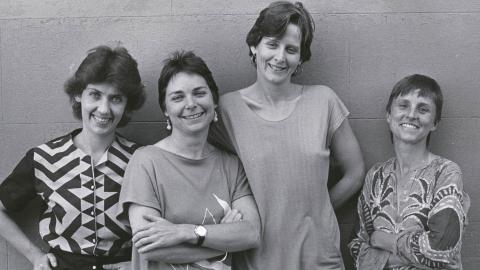

Feminist rockers you've never heard about
In 2017, we've seen a period of revived feminist activism, from #nastywomen hashtags to pink-knitted pussyhats. This centring of feminism has seen pop stars from Beyoncé to Miley Cyrus, Delta Goodrem to Tina Arena readily embrace the word. This popularity is a marked shift from the heyday of second-wave feminism during the 1970s when ‘feminist’ was often a scorned label.
If the 'soundtrack of feminist activism' now draws on such pop hits as Beyoncé’s 'Flawless' (ft. Chimamanda Ngozi Adichie) or 'QUEEN' by Janelle Monáe (ft. Erykah Badu), what would be the soundtrack of Australian feminist activism of the 1970s? We’ll take a look at three tracks from the small output of recorded music produced by all-women bands that came out of the second-wave feminist movement in Australia. From early all-female rock groups such as Mystical Miss to feminist jug bands like Shameless Hussies, women’s music groups were integral to the Women’s Liberation movement in Australia, but only a handful of over 120 bands were able to release recordings.
During the 1970s and 1980s, Australian women’s music flourished at women’s dances, feminist rallies, non-feminist pubs and clubs. Then it disappeared with hardly a trace.
Between the late 1970s and the end of the 1980s, Australian women’s music groups produced four albums and four singles pressed on vinyl, and eight studio-recorded cassette tapes - all were self-funded. While a mere handful of recordings were produced, many of which are now rarities, we preserve a number of them at the NFSA.
The political imperatives of the second-wave feminist movement, including the creation of women-identified music and feminist community and cultural spaces, led to the formation of all‐women bands, largely self-taught, taking to the stage for the first time. In 1975, the United Nations declared a ‘Decade of Women’, with Helen Reddy’s iconic hit single and feminist anthem ‘I Am Woman’ (1972) chosen as the theme song. This year also saw the formation of women’s groups Clitoris Band and Shameless Hussies.
Three years later the folk-influenced group The Lavender Blues became the first to release a record, Wake Up Sister (1978). Nikki Mortier was a founding member of The Lavender Blues, along with her then partner Dorelle Pinch, and Carol Deagan.
'Lavender Blues', the first track from The Lavender Blues' 1978 album Wake Up Sister.
The Tasmanian folk group The Ovarian Sisters first performed in support of a Women’s Centre Collective public meeting on women’s health and abortion rights, warding off protesting anti-abortion activists. Their early songs drew on British folk tunes: existing tunes re-worded to address local concerns. Later original songs addressed issues from law reform to women’s refuges, like the 13 tracks which were released on the album Beat Your Breasts (1980). The title track from the album is a rollicking celebration of women’s ‘breasts, boobs and tits’, in all their variety:
The sixth song and title track from The Ovarian Sisters' 1980 album Beat Your Breasts.
'Self Attack’ is the best-known song by Stray Dags, one of the most successful band of the women’s music scene in the early 1980s. It was released as a single, ahead of their only album, Lemons Alive (1983), which reached number one on the independent music chart.
The lyrics offer a feminist commentary on how women ‘attack’ their body surgically via plastic surgery, and also, for those in the know, a somewhat indirect and sly dig toward radical feminists into self-defence. Aside from the message, the song was influenced by disco beats and as such often performed at the end of the night when the crowd was up and dancing. The song represents an ‘alternative' soundtrack; while it flew under the mainstream radar, it was widely known to lesbian feminists audiences and indie music listeners during the early 1980s.
Track from Stray Dags release 'Self Attack' / 'Confessions'.
Women were starved in those days for anything because as far as I know we were the first Australian lesbian group to put out an album. So we were sort of the flavour of the month in the lesbian community for a couple of years.
This article was first published in 2017. Some details were updated in 2023.
The National Film and Sound Archive of Australia acknowledges Australia’s Aboriginal and Torres Strait Islander peoples as the Traditional Custodians of the land on which we work and live and gives respect to their Elders both past and present.


